It's farming - but with a Mexican flavour
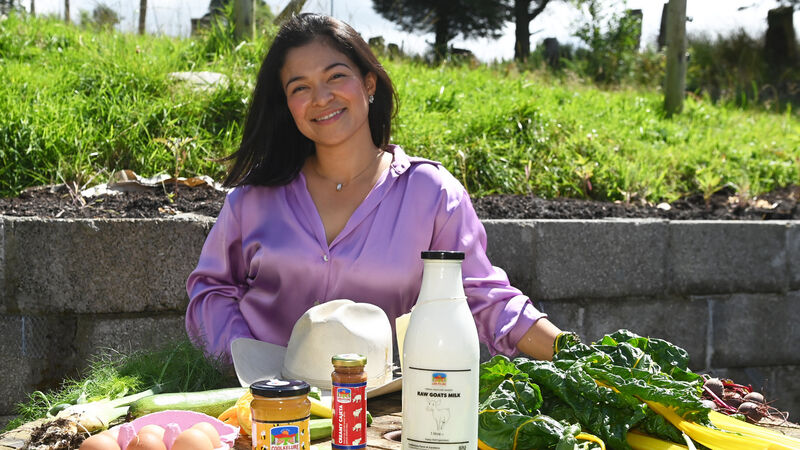
Mexican Sonia Kingston Castro with some of the products available at Coolkelure farm and gardens near Dunmanway. Picture: Eddie O'Hare
JUST five minutes from the market town of Dunmanway is the small community of Coolkelure, nestled amongst verdant pasture and woodland. Rising overhead is Nolwen Hill; nearby, a pristine lake; the gothic architecture of Coolkelure House once belonging to Lady Bandon; a church, and wilderness as far as the eye can see.
In an entry from the Irish Folklore Collection, Coolkelure translates as ‘the valley of the warbling birds’, an apt name for a place that feels like it’s a million miles from anywhere, untouched, and as ancient as the very hills that surround it.
In this magical place sits a farm that has been in the Kingston family for five generations – the fifth being John Kingston and his Mexican-born wife Sonia ‘Viri’ Viridiana. When not busy raising their three children, (the sixth generation), John is farming, plastering and tending his herd of goats. Sonia tends her vegetables, chickens, pigs and bees.
The farm is a partnership between them, and I stumbled upon them while looking for a local organic farm running a Veg Box scheme. From there, the story of how Sonia came to be in the wilds of Dunmanway from Mexico’s second largest city fascinated me. As I collected a regular veg box of beautiful tasting produce, she shared her story with me.
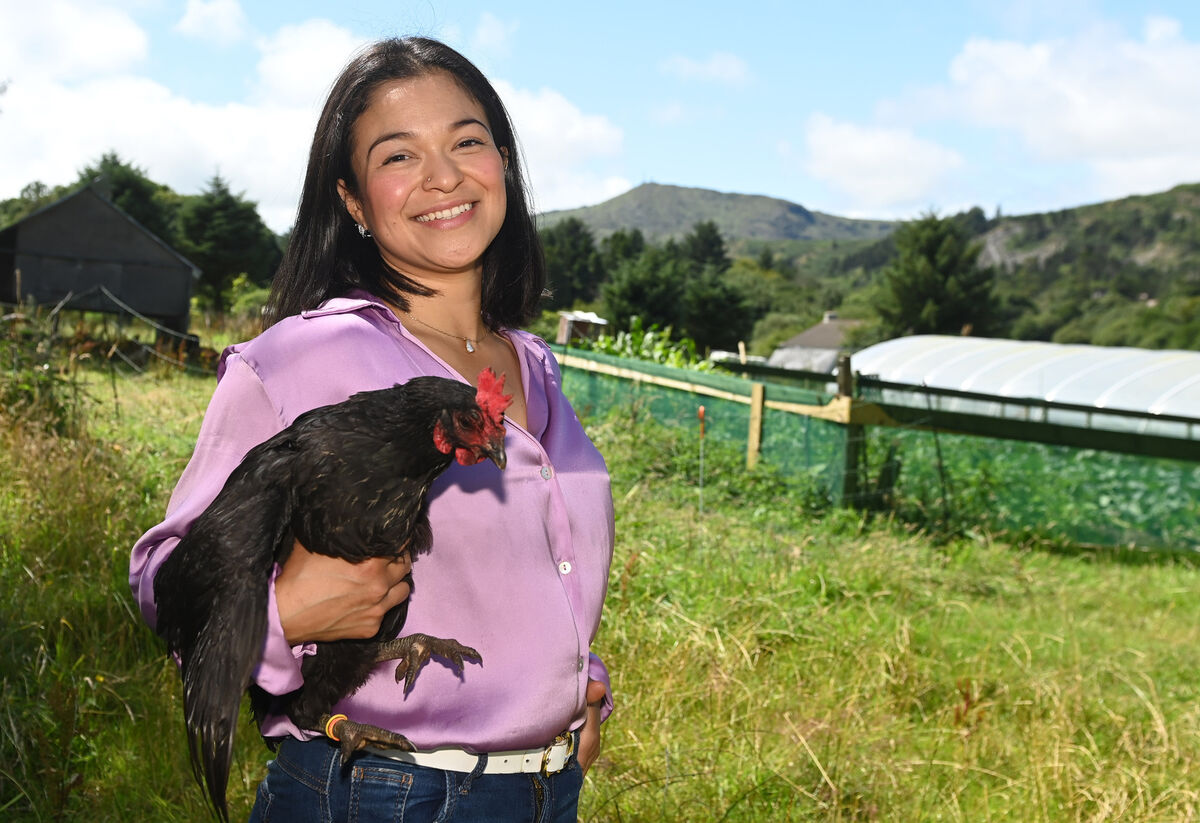
Sonia hails from Monterrey in Mexico, it’s second largest city with a population on par with the whole of Ireland. Foodwise, it’s famous for Cabrito, or goat kid, cooked over fire in a method known as Asador.
The other famous food of Monterrey is Cajeta, also sometimes known as Dolce de Leche, a sweetened and spiced pourable caramel made from goat’s milk.
Sonia grew up around food, but not in the same way that her children are growing up around food today.
“My parents owned a butchers’ shop and a catering company that ran cantinas (canteens) in some of the large factories in the city.”
Sonia, an engineer by education, worked in her parents’ catering company, making sure everyday hundreds of people were fed well with homely dishes of beef, pork or chicken, rice and beans, corn tortillas, salads and salsa. Her role was in management, although she says there was always time for tasting! Sonia lived with her parents, working in her parents’ company, and often sharing the workplace with other members of her family.
“Life in Monterrey was very social for me,” says Sonia. “I loved theatre, drama and fashion, and book clubs. Sundays were for church and family.”
John and Sonia met at a wedding of two good friends: she was a bridesmaid and he a groomsman.
“It was a magical atmosphere, and there was an instant connection. We are both romantics and dreamers, but we didn’t see each other again for eight months. We kept in regular touch by email and letters,” Sonia recalls.
Their long-distance relationship continued in this vein for two years before John asked Sonia to marry him, and in 2012 Sonia left her Monterrey behind to begin a new life with her husband in West Cork.
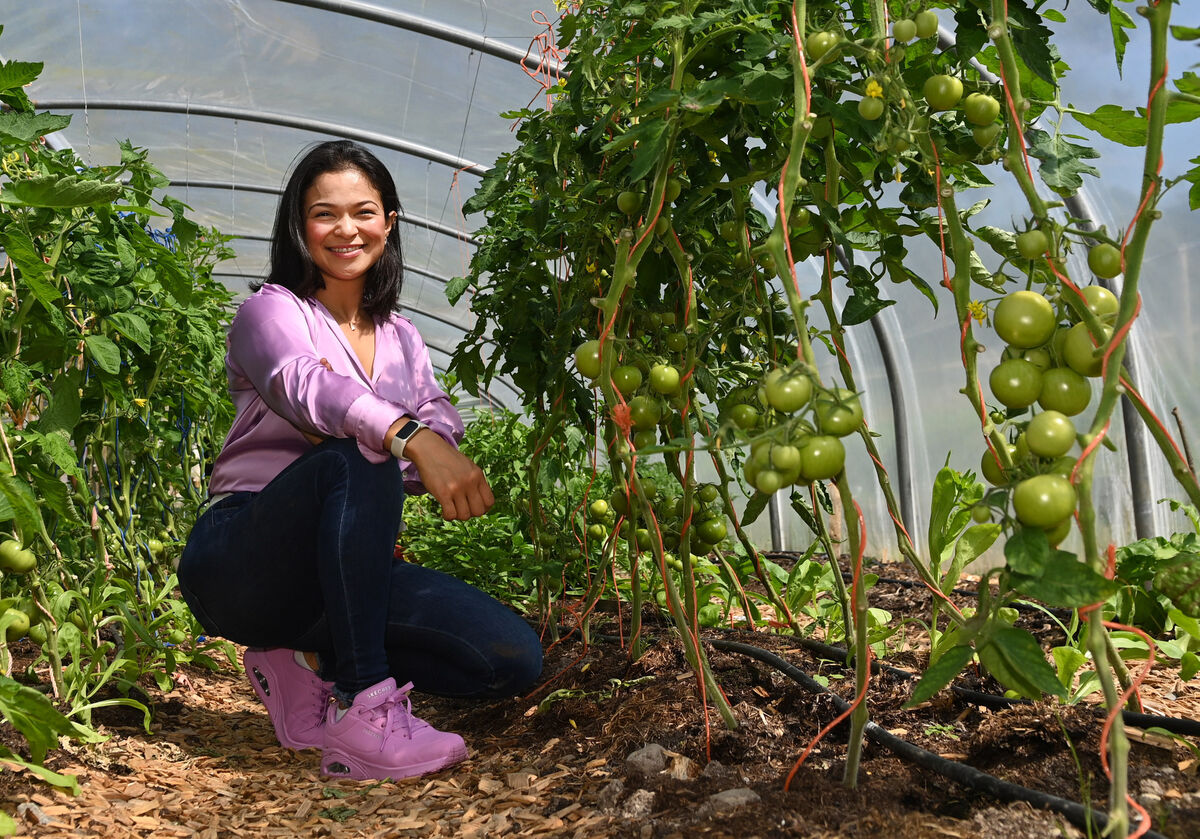
Outside of John and his family, Sonia was starting from scratch, but found a warm welcome amongst John’s friends and the local church community.
“I wanted to do what I could to be useful. I learned to drive a tractor, got my driver’s licence so I could feel independent, and took photographs of life on the farm and in the village.”
Three children followed quickly, and Sonia was determined to always be there for her children. As they grew and began school, like many mothers, she found herself with spare time on her hands and wondering how to fill it.
“I knew I wanted to do something. I worked in a coffee shop for a while, but then I started to look at the farm and wondering what could I do? What was missing?”
Her parents-in-law were sheep farmers, and John was working in the construction industry; what was missing was vegetables.
“My passion is nature, and I began with a small nursery for growing trees. John’s parents gave me a strip of land to use as a nursery, we got a few hens, and we had a little veg patch planting things to see what would work. I grew courgettes and chillies – two foods of Mexico that reflected my identity,” Sonia says.
From small acorns do mighty oaks grow, and sure enough, nurturing trees and growing enough veg for themselves opened a doorway for wanting to do and learn more.
That led Sonia to something called Regenerative Agriculture, a system of farming that works with nature and builds in ways of restoring and enhancing soil health, landscapes and biodiversity, protecting and conserving water, building resilience to climate change and finding ways to sequester carbon to enable farms to become net zero emitters.
“I learned from practitioners such as Richard Perkins and Jim Cronin, who were looking at ways farming can help nature but also still make money. It teaches us to look at the land and it will tell you what it needs. I now talk about pasture, not grass, and woodland, not forestry.”
Sonia was hooked and put into practice what she was learning at rapid speed.
“We were going to start growing commercially in 2020, but of course the pandemic hit, so in the end we put all our focus into creating our own little Eden.”
In 2021, Sonia enrolled in the pioneering Sustainable Horticulture and Permaculture course at the Kinsale campus of Cork College FET, to round off what she had already learned about growing vegetables as a commercial enterprise.
Part of the course required designing a business idea, and one of those floated was a Community Supported Agriculture, or CSA, vegetable box scheme.
“I graduated from Kinsale in May, 2022, and the very next day I planted out my first batch of seedlings,” says Sonia. “Everything I was learning on the course, I implemented straight away. I knew if I could get 20 families in the local area to sign up for the CSA scheme, it would support me, my home, my animals, and bring in an income.”
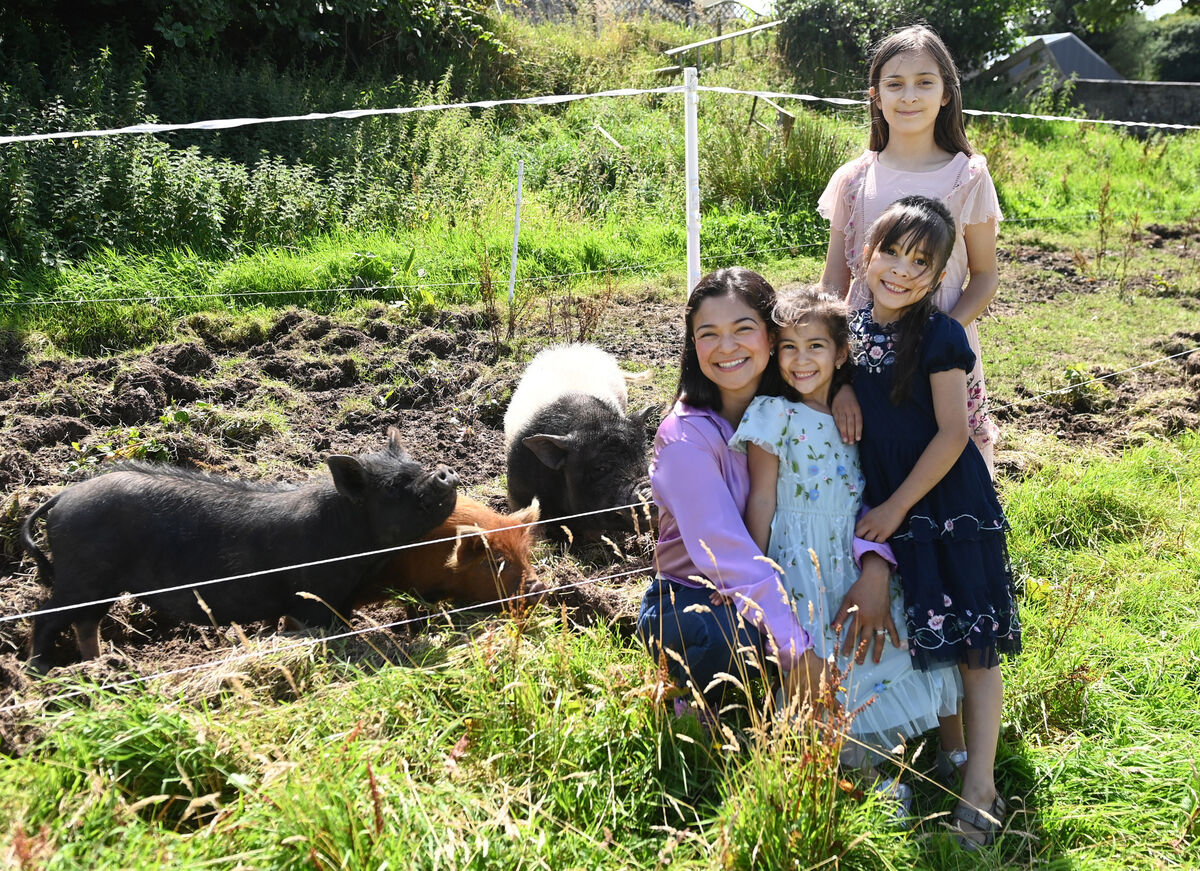
Sonia says the course provided her with a sense of who she was: “I suddenly felt that this was me – this is who I am. Growing food gave me a sense of belonging and showing that I could earn a living from it gave me credibility. This wasn’t just a hobby; it needed much more commitment than that.”
Coolkelure is a mixed farming enterprise, which means they produce more than just one thing. It sounds very newfangled, but ultimately this is the way farming always used to be before crop growing and animal rearing went down the road of specialisation and monoculture.
Between one large polytunnel and field grown crops, less than 0.15 acre is utilised for producing vegetables. As well as seasonal favourite such as peas, courgettes, chard, tomatoes, beans, potatoes and beetroot, Sonia challenges herself to grow vegetables more typical of Mexico: sweet potatoes, chillies, tomatillos, and, a rare treat, Jicama – a juicy turnip-like root that is beloved by Mexicans.
Two smaller tunnels are used for growing herbs and a tiny plant nursery. A small herd of goats are kept primarily for milk, bottled as raw, organic goats’ milk, and sold at the farmgate. When male kid goats are born into the flock, a small number are sent for slaughter so Sonia can celebrate Monterrey cuisine with a feast of Cabrito.
Chickens are kept for both egg laying and as broilers (meat), ducks for eggs, bees for honey, but the piggies are kept as pets and are useful as rotovators churning up the soil as they hunt for tasty morsels.
Sheep are kept by John’s parents, and they have planted more than 800 trees by hand, some of which have been planted for future use as firewood. They have access to a pure mountain stream which is ferociously minded for the precious resource it is. Coolkelure is one of just a small number of so-called Blue Dot areas where the water is considered pristine.
All the crops are grown without chemicals and Coolkelure is a certified organic farm. Sonia and John have created a farm that, except for electricity (something that will be rectified in the next year) is entirely self-sufficient in food, water and heat.
Not only that, but they are able to provide fresh produce to their local community, and at the small ‘farm shop’ at the farm gate, which operates an honesty box system, people can pick up eggs, honey, excess produce, and jams and chutneys made by John’s mum.
“The community is finding an experience by coming to us,” says Sonia. “I get excited when people come to collect their veg boxes, and that means we don’t waste any of the food we grow. I never thought I’d be producing food in this way. Life is always talking to you, and we must be alert to what it is saying.”
The aim, of course, like any kind of farming, is to earn a living. There’s a tendency to over-romanticise farming in Ireland, particularly horticulture. It’s hard work growing vegetables, and that is reflected in the price. Small growers can never compete with the bargain-basement selling practices of big retailers. But placing a higher value on the vegetables we source, cook and eat, the better quality those vegetables will be, the healthier we will be, and the healthier the environments we grow them in will be.
Sonia says there is a “sense of achievement” in what they are building at Coolkelure. The moment when, after a long workday, she can sit and eat a meal made from produce she has grown, flavoured with herbs and spices she has grown, all of which provides a taste of Mexico in Dunmanway.
“I’m fortunate that this is my job,” says Sonia, “and it really doesn’t matter if you don’t know something – just go, learn it, then put it into practice!”
If planting a seed is an act of optimism, then Coolkelure is seeding a shared optimism that will stretch far into the future.
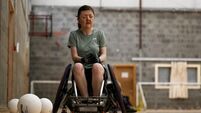




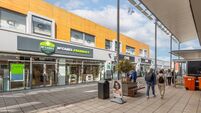

 App?
App?


